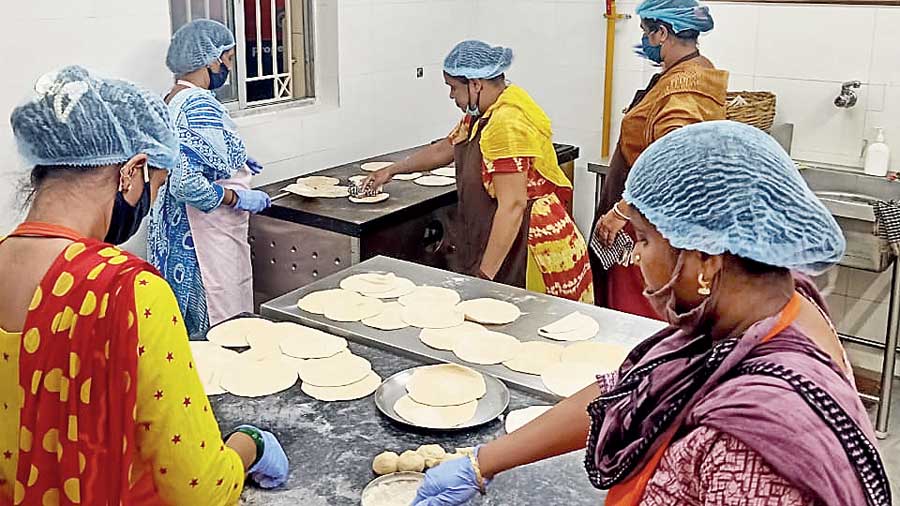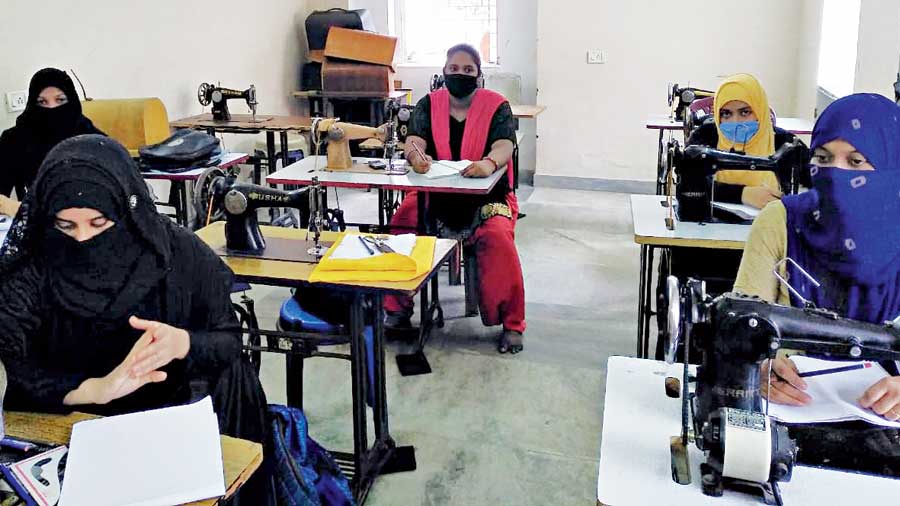The pandemic has made women from marginalised sections of the society realise the importance of self-reliance and independence, feel many organisations working with them.
There is a greater demand for vocational courses and underprivileged women have understood the need to upskill themselves to be more employable in these dire times, according to those working with underprivileged women.
For many such families, the men have been out of work during the pandemic and the responsibility of feeding the children and others is on the women.
The pandemic has created a sense of “urgency and desperation” among the women and their husbands, too, are creating “far less obstructions” now, according to members of some NGOs that have been running vocational courses such as tailoring, handicraft, cooking, and bakery long before the coronavirus struck.
Some NGOs have been flooded with requests for training and they had to screen candidates because it was not possible to accommodate everyone.
For example, Ek Tara, a trust that works with women and children in the Tiljala-Topsia area, received 90 applications for 24 seats in the tailoring course.

An Ek Tara community kitchen that provides subsidised meals to workers in manufacturing units Telegraph picture
The Kolkata Mary Ward Social Centre (KMWSC), a wing of the Loreto Congregation in South Asia, had received requests from women to reopen the vocational units in the initial days of the lockdown.
“Before the pandemic we had to persuade women to acquire some skills… they would usually cite financial and time constraints and not join the courses,” Manjusmita Bagchi, the associate director at Ek Tara, said. “In fact, some would commit to join but not turn up. Now, they have realised the importance of self-reliance.”
For the sake of accountability, the women have to pay 10 per cent of the course fees in instalments, which works out to roughly Rs 400.
The trust runs a community kitchen to provide subsidised meals to workers in manufacturing units in the area. And the trust trains and employs women for this.
“The training for tailoring is for two days a week… on other days they need to have exposure to the machines to set their hands. It will create an opportunity for them to work in the leather manufacturing units in the locality,” Anupriya Bhattacharya, the head of the community centre at Ek Tara, said.
The KMWSC runs a beautician’s course apart from tailoring, bakery and manufacturing sanitary pads.
“We train them and sell the products manufactured by them and give them the money. The sense of urgency and responsibility is more among these women now. They say if they do not earn, their children will go hungry,” Sister Monica Suchiang, the director of KMWSC, said.
“Because of the number of requests we are trying to complete the training by holding more classes. This will enable us to start fresh batches and train more women,” Sister Suchiang said.
In Calcutta, the KMWSC currently trains 150 women in batches of six for 90 minutes from 9am to 4pm.
“Sanitisation is expensive but that cannot stop us from helping these women to get upskilled,” Sister Suchiang said.
The pandemic has made the men in these households more “cooperative” now. They allow the women to go out for work, which means fewer dropouts.
“The women are more regular now… there is less obstruction from their husbands. The need is more now,” Arjun Dutta, the president of NGO, Calcutta Social Project, said.
Saba Parveen, in her 30s, with two boys, aged 9 and 12, has been working at the kitchen of Ek Tara after completing her training. She received her first salary of Rs 6,000 on Thursday.
When the pandemic struck, her husband lost his job at a bag manufacturing unit. She overcame her inhibitions and her husband did away with his high-handed attitude and allowed her to step out.
“There is no money at home… we know the kind of hardship we are going through to manage a meal. Earlier, my husband would not approve of me stepping out to work and I, too, would be happy at home taking care of the children… now, the situation is different,” she said.










